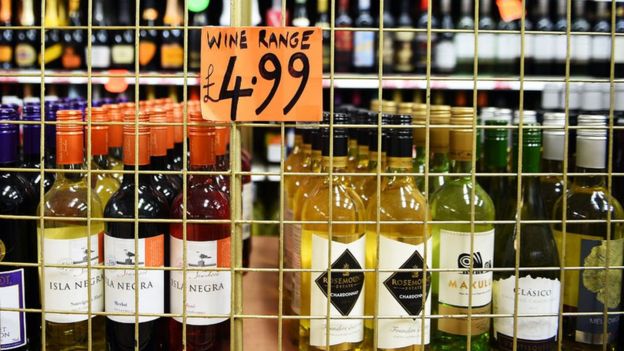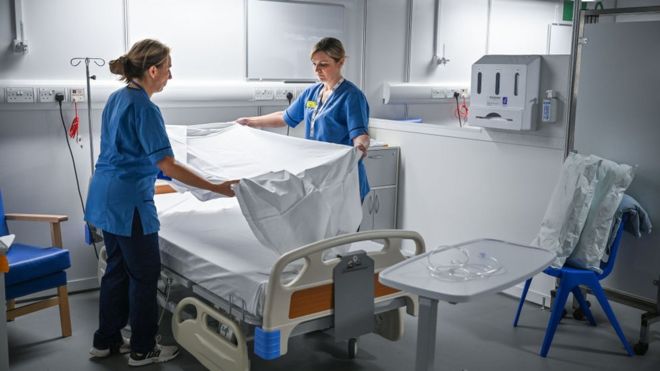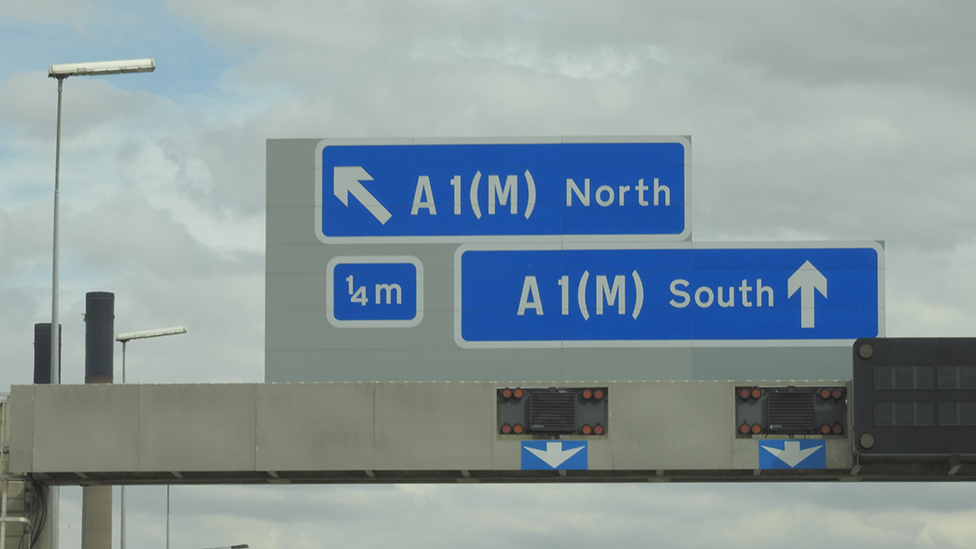Currently the NHS tracing app requires IOS13.5 or above to install, so it is not compatible with older phones. Is there a workaround? From Taraka
Although the government is asking anyone with a smartphone to download the new Covid-19 tracing app, it will only work on a certain number of newer models.
This is because it uses technology only recently developed by Apple and Google, which will not work on earlier operating systems.
To use the app, your phone must have the IOS 13.5 operating system installed (released in May 2020), or Android 6.0 (released in 2015), as well as Bluetooth 4.0 or higher.
This excludes the iPhone 6 or any earlier models, as well as old versions of Apple’s handsets (and some newer Huawei phones).
If your smartphone is not compatible, the NHS Test and Trace Service is still the first port of call for any contact tracing issues.
My wife and I currently live apart until I retire. I live in Cumbria, she lives in Fort William. Which tracing app should I use? From Nick Jowett, Burgh-on-Sands, Cumbria
Apple and Google's framework will not allow two apps to contact trace simultaneously.
So when you cross the border from England to Scotland, you need to open the Scottish app and turn on contact tracing within it. This will bring up a prompt asking: "Switch app for exposure notifications?" When you do this, it will turn off the app you were using beforehand.
I have a bar and restaurant and I have just watched BBC news report on the new NHS app and QR code. Where do we obtain the QR code? From Steve Capewell, St Columb, Cornwall
You can get your own unique QR code at this government website. All you need to enter is your email and your restaurant's address.
Every business, place of worship, event and community organisation with a public space should create a unique QR code they can display for visitors to scan.
You can then print off a QR code poster. It’s a good idea to put the QR poster near the entrance, so that visitors can log their location by scanning the poster with the track and trace app when they arrive.
If you run more than one venue, you will need to create a separate QR code for each location.
I have hearing aids which are connected to my smartphone via Bluetooth, will this affect the operation of the app? From Richard Smith, Milton Keynes
The government says that the app “has been designed to work in the phone’s background, working alongside other Bluetooth features and devices”, so your hearing aids should be unaffected.
If you do find some interference, there is an online form to report this to them.
There have been no reports of interference between the app and medical devices in trials, but the government says it is sensible to be cautious when you rely on a medical device – in particular, it has included advice for people who use pacemakers.
Why are the shops not being made to close at 22:00? When the pub shuts, surely everyone will pile into shops to buy alcohol and party at home? From Michael Truin, Manchester
It depends in which nation they live.
In England, there would be nothing to stop groups of up to six people leaving pubs and restaurants after they shut, buying drinks and then taking them home.

People in extended households in Wales could also go back home to carry on drinking after the curfew, but they would not be able to buy more drinks as sales of alcohol from off-licences and supermarkets after 22:00 will also be stopped.
However, in Scotland and Northern Ireland people would need to go home separately, as social visits to other people’s homes are currently banned.
With more tests clearly contributing to the increase in positive tests, why is the number of new cases requiring hospital admission unknown? From Steve Surridge, Puckeridge, Ware
The UK government publishes daily hospital admission figures. Analysis of NHS England figures suggests these figures include around two-thirds of patients who tested positive in hospital after admission.
Sometimes this will include patients who are poorly because of Covid, but it also includes those in hospital for very many other reasons – they may not have had, or ever have, Covid symptoms.

Health conditions are often complex, and it can be hard to know what the primary cause of hospital admission may be.
But we can look at daily figures in combination with statistics about deaths where Covid is mentioned on the registration certificate, plus the number of confirmed Covid patients in hospital and those on mechanical ventilation beds as well as overall case numbers to give us a more rounded indication of the virus threat.
Is Covid-19 a northern illness? There have been no sanctions anywhere in the south of England, yet large-scale sanctions north of Watford. Surely on numbers of population per area there must be similar situations in the south? From Andrew Litkowski, Accrington
Currently, more than half of the people living in the north of England are facing additional coronavirus restrictions compared with no-one in the south.
Case rates in the north of England are far higher than the south of England, although this in part could be down to more testing in known “hotspots”. Recently, though positivity rates – that’s the proportion of tests that turn out positive – have also increased, suggesting more testing is less of a factor.

However, hospital rates do show that over the past few months, the north of England has had a higher, more persistent problem than the rest of the country.
This could be due to more people living in urban areas, there being fewer jobs where you can work from home and greater levels of deprivation, which is linked to more overcrowded housing and health vulnerabilities.
Many of these factors also apply to London, which has had more excess deaths than any other region by a large margin. But London’s first wave was shorter (and more deadly) than the more sustained hospital and case rates we’re currently seeing in the north.
Finally, it’s important to note that – while certain factors might limit the extent of regional impacts – cases are currently rising across the whole country.
My partner and I have booked a three-day break in Northumberland for next week. We have booked our hotels and restaurants. Does this new lockdown mean we can't go? From Margaret Harty, Huddersfield
No. The latest restrictions do not mean that you and your partner cannot go on holiday to Northumberland, although the area is already subject to some local restrictions which limit households mixing.
Hospitality venues in the region can already only offer table service and must close between 22:00 and 05:00.

However, you may be affected by new rules which say you must wear a mask when you are not seated at your table inside any bar or restaurant, or risk a fine of £200.
We are two widowed people aged 80 living separately. We holidayed together last week, sharing a bed. Are we breaking the law if I visit her? From S Bardsley, Rainford
What will happen to people who were shielding but are now working? I am working in a school and am very scared. From Sharon Vaz, Orpington
With coronavirus cases starting to rise again, the government in England has returned to saying that people should work from home wherever possible. But clearly this is not an option for those who work in schools.
The guidance – including for those previously advised to shield – is that you can continue to go to work as long as the workplace is covid-secure, which all schools should be, and take extra care with hand washing and social distancing.
If the NHS has previously listed you as clinically extremely vulnerable and your area goes in to a local lockdown, the government may write to you and advise you to stay at home and shield.
My husband is working from home. Can I have five friends round while my husband is working in his study, providing he doesn't join us? From Rachel Anderson, Lambeth
Unfortunately not. In England, up to six people can meet indoors. There are some exceptions, such as support group meetings or to provide childcare, but socialising with friends is subject to this ‘’rule of six’,’ even if your husband is in a different room.
The six of you could meet outdoors or indoors at a pub or café, without your husband, and that would be within the rules.
I live alone and I would like to know if I can go to the pub to see my mates. Could I form a bubble with a couple of them or is this not allowed? From Michael Connolly, Rochdale
In areas where there are no local restrictions, there would be nothing to stop you meeting mates in the pub, as long as you followed the rules when you were there - stay within a group no larger than six people, keep an appropriate social distance from each other, don’t mingle with any other people, and wear a face covering when you’re not sitting at a table drinking or eating.
This is not the same as a “bubble” which is a term used to describe a group of people with whom you can have close personal contact. As someone living alone, you could form a bubble with one other household and stay overnight at each other’s home.
However, since you live in Rochdale, matters are not so straightforward.This area is part of Greater Manchester and currently faces local restrictions.
If you're a Rochdale resident, you are not allowed to socialise in pubs (or any public venue) with people you do not live with, unless they’re in your support bubble.
I am travelling from Swansea to Heathrow this weekend. In light of the new lockdowns in Wales can I travel on the M4 to get there? From Ian Hagain, Swansea
Yes you can.
In the first part of lockdown, Wales placed restrictions on people travelling more than five miles from their home but these have now been removed.
A number of lockdowns are currently in place in parts of South Wales, and if you lived in one of these areas - Bridgend, Blaenau Gwent, Merthyr Tydfil, Newport, Caerphilly or Rhondda Cynon - you would not be allowed to leave (or enter) without a reasonable excuse.
However, Swansea does not fall under these restrictions, so there is nothing to stop you travelling to Heathrow.
I have arranged a trip to the zoo for eight service users from the care home I work in, plus four staff members. Is this allowed? From Matt Harvey, Canterbury
In England, hospitality venues such as zoos are allowed to open, but people are not allowed to visit them in groups of more than six unless they are from the same household. If you are there for work purposes - to facilitate the trip happening – or to provide essential support as a carer, then you are exempt from the ‘’rule of six’’.
However, as there are eight service users on the trip, this would be in breach of the rules. One option would be to split into two groups of six and visit the zoo separately. Ideally you should also travel to the zoo in separate groups.

 5 years ago
900
5 years ago
900 

